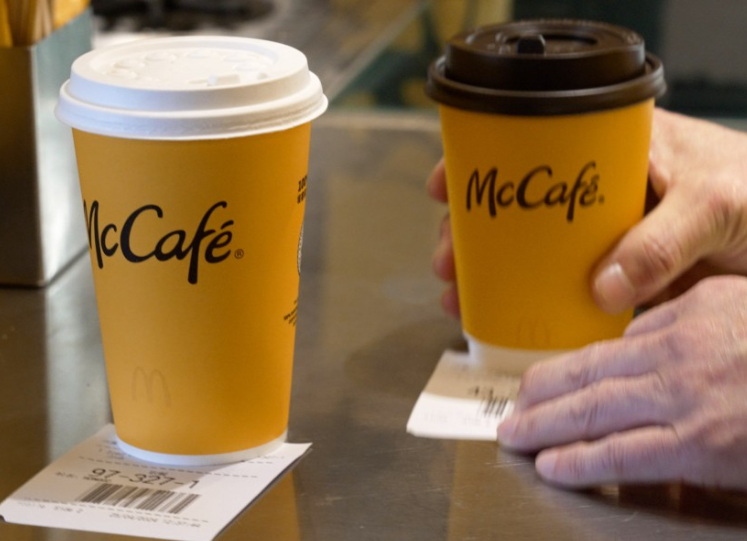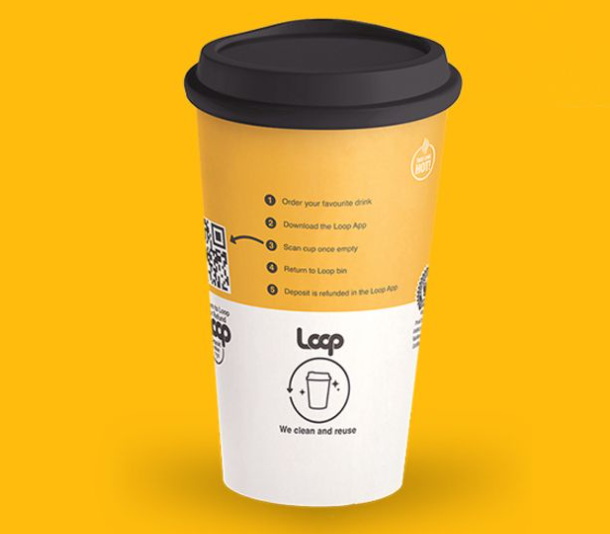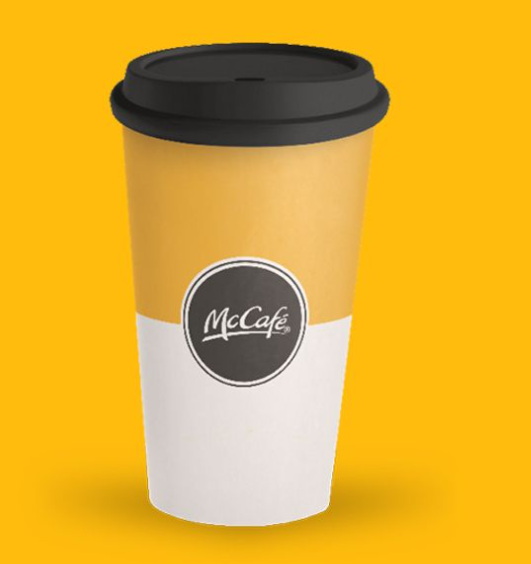
Content Menu
● Introduction to Disposable Cup Charges
>> Example of Disposable Cup Charges
>> Impact of Disposable Cup Charges
● McDonald's Environmental Initiatives
>> McDonald's Circular Clear Cups
● Consumer Experiences with Disposable Cups
>> Charging for Water
● McDonald's Progress in Sustainable Packaging
>> Future Goals
>> Actions and Collaborations
● Challenges in Implementing Sustainable Practices
>> EU Reusable Packaging Mandate
● Consumer Behavior and Sustainability
>> Impact of Consumer Choices
● Conclusion
● FAQs
>> 1. Is McDonald's Charging for Disposable Cups?
>> 2. Why Are Some Restaurants Charging for Disposable Cups?
>> 3. What Are McDonald's Environmental Initiatives?
>> 4. Can I Use My Own Reusable Cup at McDonald's?
>> 5. How Do Disposable Cup Charges Affect Consumers?
● Citations:
In recent years, there has been a growing trend towards reducing the use of disposable cups and containers, driven by environmental concerns and government regulations. McDonald's, one of the world's largest fast-food chains, has been involved in various initiatives aimed at reducing waste. However, the question of whether McDonald's is charging for disposable cups specifically is not straightforward. This article will explore the broader context of disposable cup charges, McDonald's environmental initiatives, and how these factors interplay with consumer experiences.

Introduction to Disposable Cup Charges
Disposable cups, particularly those used for hot beverages, have become a significant environmental issue. Many governments and local authorities have introduced fees for single-use cups to encourage the use of reusable alternatives. For example, in Scotland, there are plans to introduce a 25p charge for single-use cups to reduce waste and promote sustainability.
Example of Disposable Cup Charges
In some regions, businesses are required to charge customers a small fee for using disposable cups. For instance, in Truckee, California, a $0.25 fee is applied to disposable cups and takeout containers to incentivize customers to bring their own reusable options. This approach is part of a broader strategy to reduce waste and encourage sustainable practices.
Impact of Disposable Cup Charges
The impact of charging for disposable cups can be significant. It not only reduces the number of single-use cups used but also encourages consumers to adopt more sustainable habits. However, the effectiveness of such charges can vary depending on consumer behavior and local recycling infrastructure.
McDonald's Environmental Initiatives
McDonald's has been actively working on reducing its environmental footprint. One notable initiative involves testing circular clear cups made from recycled and biobased materials. These cups are part of a broader strategy to source 100% of guest packaging from renewable, recycled, or certified sources by 2025.
McDonald's Circular Clear Cups
McDonald's is testing cups sourced from equal parts recycled and biobased materials. These cups are designed to be recyclable and are being tested in select locations. The goal is to keep plastic in use and out of landfills, aligning with the company's commitment to a circular economy.
Consumer Experiences with Disposable Cups
While McDonald's has not universally implemented a charge for disposable cups, some locations may charge for water or other items that involve the use of disposable cups. This is often due to franchisee policies rather than a corporate-wide initiative.
Charging for Water
Some McDonald's locations have started charging for water, citing the cost of cups and lids as a reason. This practice varies by franchisee, with some charging up to $1 for a large cup of water. The rationale behind this charge is to cover operational costs and potentially discourage unnecessary use of disposable cups.
McDonald's Progress in Sustainable Packaging
McDonald's has made significant strides in transitioning to sustainable packaging. By late 2023, the company had achieved approximately 86.7% of its goal to source all primary guest packaging from renewable, recycled, or certified materials[2]. Additionally, McDonald's has reduced the use of virgin fossil fuel-based plastics in Happy Meal toys by 63.7% since 2018[2].
Future Goals
McDonald's aims to meet four primary objectives by the end of 2025. These include achieving 100% use of renewable, recycled, or certified materials for primary packaging and continuing to reduce virgin fossil fuel-based plastics[2]. The strategy emphasizes a circular economy approach, focusing on improving recycling rates and reducing waste.
Actions and Collaborations
McDonald's is enhancing recycling infrastructure in its restaurants, collaborating with waste management firms and suppliers, and improving packaging design for recyclability. The company is also working to increase demand for recycled materials by sourcing more recycled content for various packaging items[2].
Notable collaborations include McDonald's membership in ReSource: Plastic and the Bioplastic Feedstock Alliance, which support plastic waste reduction and bio-based plastic advancements. The company engages with industry organizations and policymakers to address recycling challenges and advance a circular economy[2].

Challenges in Implementing Sustainable Practices
Implementing sustainable practices, such as charging for disposable cups or transitioning to reusable packaging, can be challenging. McDonald's has faced resistance from some consumers who are accustomed to the convenience of single-use items. Additionally, the company must balance sustainability goals with operational costs and consumer expectations.
EU Reusable Packaging Mandate
In Europe, McDonald's has expressed concerns about the EU's reusable packaging mandate. The company argues that while it supports sustainability, the mandate could inadvertently increase plastic use by requiring the reintroduction of plastic for reusable containers[4]. This highlights the complexity of balancing sustainability goals with practical implementation challenges.
Consumer Behavior and Sustainability
Consumer behavior plays a crucial role in the success of sustainability initiatives. Encouraging consumers to use reusable cups and containers can significantly reduce waste. However, this requires a cultural shift towards valuing sustainability over convenience.
Impact of Consumer Choices
The choices consumers make can influence companies like McDonald's to adopt more sustainable practices. By demanding environmentally friendly packaging and supporting companies that prioritize sustainability, consumers can drive change in the industry.
Conclusion
While McDonald's is not universally charging for disposable cups, the company is actively engaged in reducing waste through sustainable packaging initiatives. The broader trend of charging for disposable cups is driven by environmental concerns and government regulations. As consumers become more environmentally conscious, businesses like McDonald's are adapting to meet these changing expectations.

FAQs
1. Is McDonald's Charging for Disposable Cups?
McDonald's does not have a universal policy of charging for disposable cups. However, some locations may charge for items like water due to franchisee policies.
2. Why Are Some Restaurants Charging for Disposable Cups?
Restaurants charge for disposable cups to cover costs and incentivize the use of reusable alternatives. This practice is often mandated by local regulations aimed at reducing waste.
3. What Are McDonald's Environmental Initiatives?
McDonald's is testing circular clear cups made from recycled and biobased materials as part of its goal to source 100% of guest packaging from renewable, recycled, or certified sources by 2025.
4. Can I Use My Own Reusable Cup at McDonald's?
Yes, you can use your own reusable cup at McDonald's. Many locations encourage this practice to reduce waste.
5. How Do Disposable Cup Charges Affect Consumers?
Disposable cup charges can affect consumers by adding a small fee to their purchases. However, this fee encourages the use of reusable cups, which can lead to long-term cost savings and environmental benefits.
Citations:
[1] https://www.bbc.com/news/business-42704291
[2] https://www.packagingmea.com/mcdonalds-progress-and-strategy-in-sustainable-packaging-and-waste-reduction/
[3] https://www.dailydot.com/news/mcdonalds-empty-cup-charge/
[4] https://www.procarton.com/mcdonalds-pushes-back-at-eu-reusable-packaging-mandate/
[5] https://www.thegazette.com/business/mcdonalds-to-recycle-packaging-globally-by-2025/
[6] https://www.packaging-gateway.com/news/mcdonalds-targets-waste-reduction-new-packaging-strategy/
[7] https://www.reddit.com/r/Seattle/comments/19cdijs/disposable_cup_fee/
[8] https://www.plasticsoupfoundation.org/en/news/will-the-new-rules-on-disposable-plastic-cups-and-trays-have-the-desired-effect-2
[9] https://www.youtube.com/watch?v=SC1XsrVCM5U
[10] https://www.foodmanufacturing.com/packaging/news/13166130/mcdonalds-sets-recycling-goals-for-2025
[11] https://corporate.mcdonalds.com/corpmcd/our-stories/article/renewable_packaging.html
[12] https://www.cbc.ca/news/business/mcdonalds-vancouver-reusable-mugs-1.6426303
[13] https://www.mcdonalds.com/gb/en-gb/our-plan-for-change/great-restaurants/closing-the-loop-on-waste.html
[14] https://www.scmp.com/news/hong-kong/society/article/3298992/hong-kong-watchdog-slams-mccafe-7-eleven-over-wasteful-bring-own-cup-services
[15] https://corporate.mcdonalds.com/corpmcd/our-purpose-and-impact/our-planet.html
[16] https://laist.com/shows/airtalk/you-now-have-to-pay-for-disposable-coffee-cups-in-berkeley-will-it-expand-to-other-places
[17] https://twosidesna.org/mcdonalds-will-ditch-polystyrene-for-paper-coffee-cups/
[18] https://consult.defra.gov.uk/extended-producer-responsibility/extended-producer-responsibility-for-packaging/user_uploads/3.-producer-obligations---disposable-cups-takeback.pdf
[19] https://www.hotelhospitalitymea.com/2024/12/02/mcdonalds-qatar-transitions-to-sustainable-packaging-in-2025/
[20] https://www.cbc.ca/news/business/mcdonald-s-reusable-mug-recycle-waste-tim-hortons-starbucks-1.5413000

















